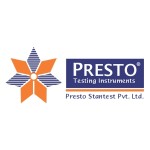In the world of manufacturing and product development, ensuring that products remain intact during transportation and handling is critical. One of the most effective tools used to test the durability of packaging is the drop tester. This essential piece of equipment simulates the real-world impacts that products may face during shipping, providing valuable insights into their strength, resilience, and overall packaging effectiveness. In this blog, we’ll explore the importance of drop testers, their pricing, manufacturers, and suppliers, and how they contribute to product safety and quality.
What is a Drop Tester?
A drop tester is a testing device used to simulate the effects of free-falling and impact on packaged products. The purpose of using a drop tester is to evaluate how well packaging can protect its contents when subjected to accidental drops or impacts, which commonly occur during transportation, storage, or handling. The tester works by dropping packages from various heights and measuring the results, helping manufacturers determine whether their packaging can withstand these forces without causing damage to the product inside.
Drop testers can simulate different drop conditions, such as dropping at various angles or simulating drops from varying heights, which helps manufacturers determine the weakest points in their packaging. The equipment is primarily used in industries such as electronics, pharmaceuticals, consumer goods, and automotive parts, where product integrity during shipping is of utmost importance.
How Drop Testers Work
The drop tester works by lifting the test specimen (usually a packaged product) to a specific height and releasing it to fall onto a predetermined surface, typically a hard, flat surface or an impact cushion. The machine is equipped with mechanisms that allow the operator to control the height, angle, and number of drops. Some advanced models also allow for the simulation of impacts at different orientations to better mimic real-world conditions.
Drop testers are available in various configurations, including manual, semi-automatic, and fully automatic models. The most advanced systems may even come with integrated sensors to measure the impact force, speed, and angle, providing more detailed analysis. This data is invaluable for improving packaging materials and designs to ensure that products remain safe during transit.
Drop Tester Price
The price of a drop tester can vary significantly depending on the features, capacity, and brand. Basic models that offer standard drop testing functionality can start at around $1,000 to $3,000. These models generally include manual height adjustment and basic control mechanisms.
More advanced drop testers, with automatic height adjustments, multiple testing configurations, and integrated sensors for detailed data analysis, can cost anywhere from $5,000 to $15,000 or higher. The cost of a drop tester can also depend on the customization options, such as the ability to test different sizes and types of packages, or whether the tester comes with software to track results and generate reports.
When purchasing a drop tester, it is essential to consider your specific needs, such as the volume of testing, the size and weight of the packages you are testing, and any additional features that could enhance the accuracy and reliability of the tests.
Drop Tester Manufacturers and Suppliers
As the demand for quality control in packaging continues to grow, many manufacturers specialize in producing high-quality drop testers that cater to various industries. Drop tester manufacturers typically offer a range of models with different specifications, ensuring that businesses can choose the right one for their specific testing requirements. These manufacturers are often experts in the field, offering customized solutions, robust construction, and high precision.
Some well-known drop tester manufacturers include:
- Presto Group: Known for producing high-quality testing equipment, including drop testers that provide reliable, repeatable results for various industries.
- Instron: A leader in materials testing, Instron provides advanced drop testing systems, featuring sophisticated features such as impact force measurement and multi-drop capabilities.
- Shimadzu: Offers a wide range of drop testers with automated features, ideal for use in research and development environments.
Drop tester suppliers play a crucial role in ensuring that these machines are accessible to a broad customer base. Suppliers typically stock a range of drop testers from different manufacturers and offer additional services such as installation, training, and after-sales support. They may also provide customization options to meet specific industry standards.
It’s important to choose a reliable supplier who not only offers competitive pricing but also provides excellent customer support and technical expertise. A good supplier will help you select the right model, assist with setup and maintenance, and ensure that the equipment continues to perform optimally.
Conclusion
A drop tester is a valuable investment for manufacturers looking to ensure their products and packaging are up to the task of withstanding the challenges of transportation. By simulating real-world drops, manufacturers can identify weaknesses in their packaging designs and make necessary improvements to protect their products during shipping.






Comments